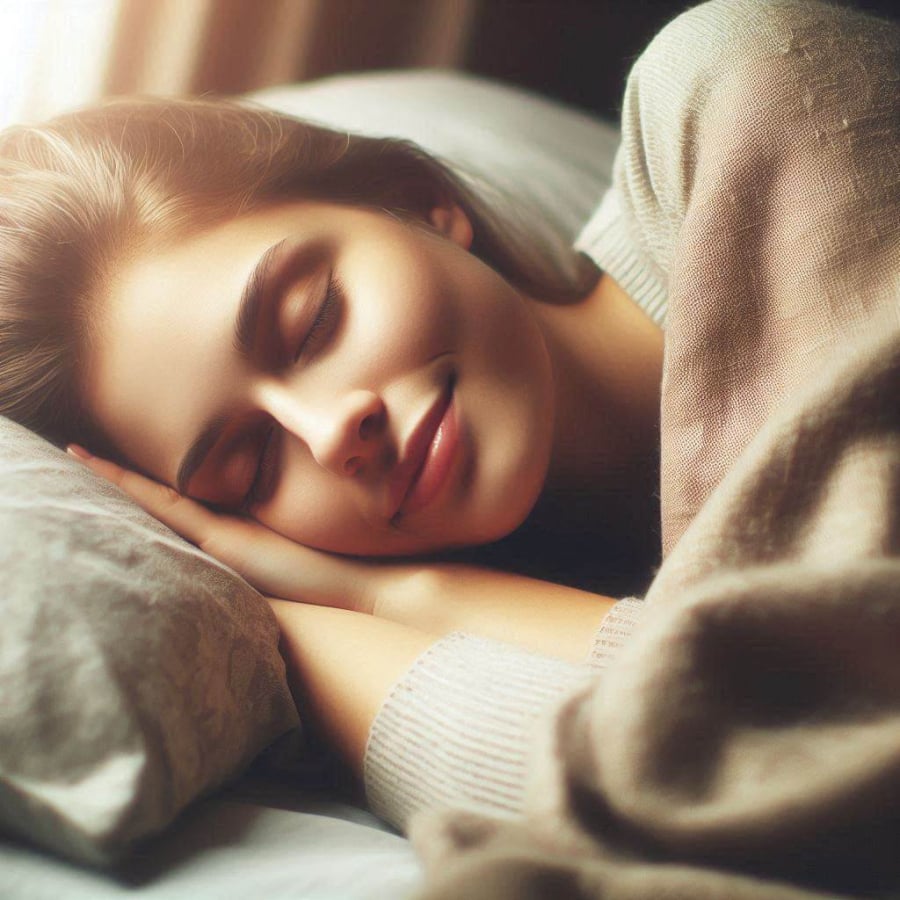Uncle Ly, a 60-year-old man from Guangzhou, has always paid special attention to his health. With his habit of going to bed and waking up early, he believes that this keeps him healthier than his peers. However, recently, information from social media has left him confused upon hearing that “Going to bed early can lead to an early death.” This has left him unsure of what to believe.
So, how should the elderly consider their sleep schedules?
Does going to bed early actually impact longevity?
According to traditional beliefs, “going to bed early is good for your health.” Chinese traditional medicine also recommends: “Go to bed early and only get up when it’s light.” However, a recent study in the journal “Sleep Medicine” showed different results. This research tracked over 112,000 people from 21 countries for more than nine years. The findings revealed that going to bed before 10 pm was associated with an increased risk of mortality.
Specifically, early sleepers had a 29% higher risk of experiencing serious cardiovascular events compared to those sleeping at regular hours (from 10 pm to 12 am).
However, some argue that this study isn’t conclusive. Firstly, it is an epidemiological study, which can only indicate a phenomenon without proving a specific causal relationship between the factors.
Secondly, while the data came from 21 countries, the proportion of early sleepers was especially high in less developed countries, at 92.6%. These countries often have underdeveloped economies and medical services, which could contribute to shorter life expectancies.

Traditional beliefs hold that going to bed early is beneficial for health.
Is sleeping early and waking up early better than sleeping and rising late?
There are mixed opinions about sleeping and waking up early compared to sleeping and rising late, along with the associated health benefits. One common question is why the elderly, who tend to sleep early, are more prone to myocardial infarction. This is actually linked to another health factor that we need to consider.
Epidemiological studies indicate that the early morning hours in winter are when the incidence of myocardial infarction peaks among the elderly. This increase may be related to cold weather conditions, which make outdoor exercise or physical activity risky for seniors with potential increases in blood pressure and vasoconstriction. For those with a history of cardiovascular disease, this may place additional strain on the heart without providing health benefits.
So, should one go to bed early and rise early or go to bed late and rise late? In reality, what matters is not a fixed sleep schedule but maintaining a consistent and adequate sleep routine. When your body doesn’t feel tired during the day, and your work and study productivity are unaffected, you’re doing it right.
However, it’s important to note that significant disruptions to your sleep cycle that affect your daily work and studies may indicate a biological rhythm disorder, and timely medical attention is advised. Adolescents tend to sleep and wake up late, while the elderly usually start their sleep earlier.
So, what’s the ideal time to fall asleep? Studies suggest that the best time to fall asleep is between 10 pm and 11 pm, considered the prime time for cardiovascular health. However, the risk of cardiovascular disease increases significantly after 11 pm, and the impact on the heart peaks after midnight.
The World Health Organization (WHO) recommends that adults ensure they get 7-9 hours of sleep daily. As physiological functions decline with age, older adults need more sleep. Specifically, those aged 50-70 should aim for 7-8 hours, while those aged 70-80 require 7-9 hours, and those over 80 should get about 9-10 hours of sleep nightly.
Lifestyles, work and study patterns vary, and some may find it challenging to fall asleep between 10 pm and 11 pm or get 7-9 hours of sleep daily. Therefore, the suggested sleep times are relative and flexible. If possible, try to align your sleep habits as closely as feasible with these recommendations.

If possible, try to align your sleep habits with expert recommendations.
5 sleeping habits to avoid for better health
Sleep is a precious treasure, essential for restoring and rejuvenating the body. However, improper sleeping habits can lead to health issues and even jeopardize your well-being.
Going to bed on a full stomach
Sleeping right after a hearty meal makes the stomach and intestines work harder, stimulating the brain and making it challenging to fall asleep. It’s best to avoid eating one to two hours before bedtime. Opt for easily digestible foods and avoid finishing large portions in the evening.
Consuming alcohol and stimulants before sleep
Research shows that drinking alcohol doesn’t deepen your sleep but instead leads to fatigue upon waking. For those with respiratory issues, consuming alcohol before sleeping can be risky.
Sleeping with the lights on
The light from lamps can negatively affect your nervous, cardiovascular, and endocrine systems. Prolonged exposure to light at night is linked to health issues like high blood pressure, diabetes, memory loss, and even obesity.
Sleeping facedown: A health hazard
Sleeping facedown can compress the chest, reducing lung capacity and making breathing difficult. It also puts pressure on the heart and lungs and can affect blood circulation, leading to numbness in the hands and feet. Additionally, it may impact facial blood circulation, resulting in swelling.
Sleeping while angry
Anger is a negative emotion that stresses the brain, preventing it from resting adequately. This can diminish sleep quality, leading to difficulty falling asleep, frequent waking, and unwanted dreams. Moreover, these negative emotions can disrupt the endocrine system, causing hormonal imbalances.






































